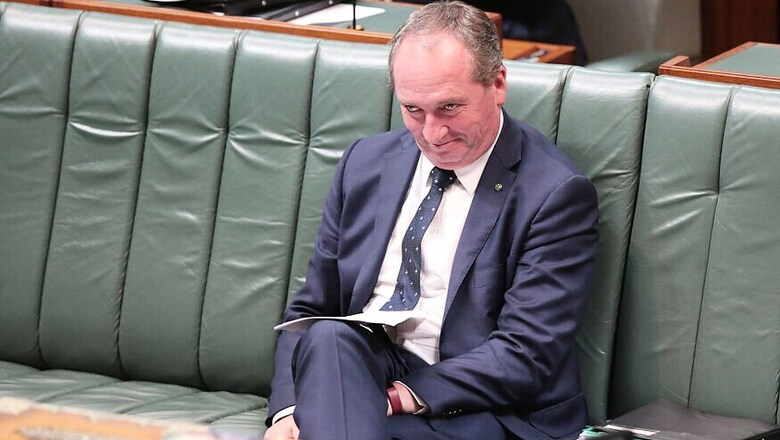
views
Sydney: The Australian government was thrown into turmoil on Friday after losing its one-seat majority when the nation's highest court ruled the deputy prime minister was ineligible to sit in parliament over his dual citizenship.
Barnaby Joyce was among seven politicians embroiled in a crisis after falling afoul of a previously obscure constitutional rule that bars dual citizens from sitting in parliament.
The High Court decision means the government has to hold a by-election for Joyce's seat of New England in New South Wales state, which it has previously said it was confident of winning.
Joyce, the leader of the rural-based National Party, is Australian-born but found out in August he automatically acquired New Zealand citizenship through his father.
He has since renounced his New Zealand citizenship.
The governing Liberal-National coalition is expected to issue writs for the by-election later Friday, with the vote to be held as soon as December 2, Joyce said.
"I thank the court for their deliberations. I respect the verdict of the court," Joyce told reporters in Tamworth, a city in his New England seat, adding that he was "always prepared for this outcome".
"I had no reason to believe that, you know, I was a citizen of any other country that Australia. That is the way it is.
"Now I am going to make sure that I don't cry in my beer."
Of the so-called "citizenship seven", only Nationals senator Matt Canavan and independent senator Nick Xenophon were cleared for parliament.
The others, who are also upper house senators -- the Nationals' Fiona Nash, the Greens' Larissa Waters and Scott Ludlam and One Nation's Malcolm Roberts -- were like Joyce also ruled ineligible.
The dual citizenship rule was originally inserted into the 1901 constitution to ensure parliamentarians were loyal solely to Australia.
However, critics say it is out of step with the country's modern reality, where 50 percent of the population are either foreign-born or the children of immigrants.


















Comments
0 comment